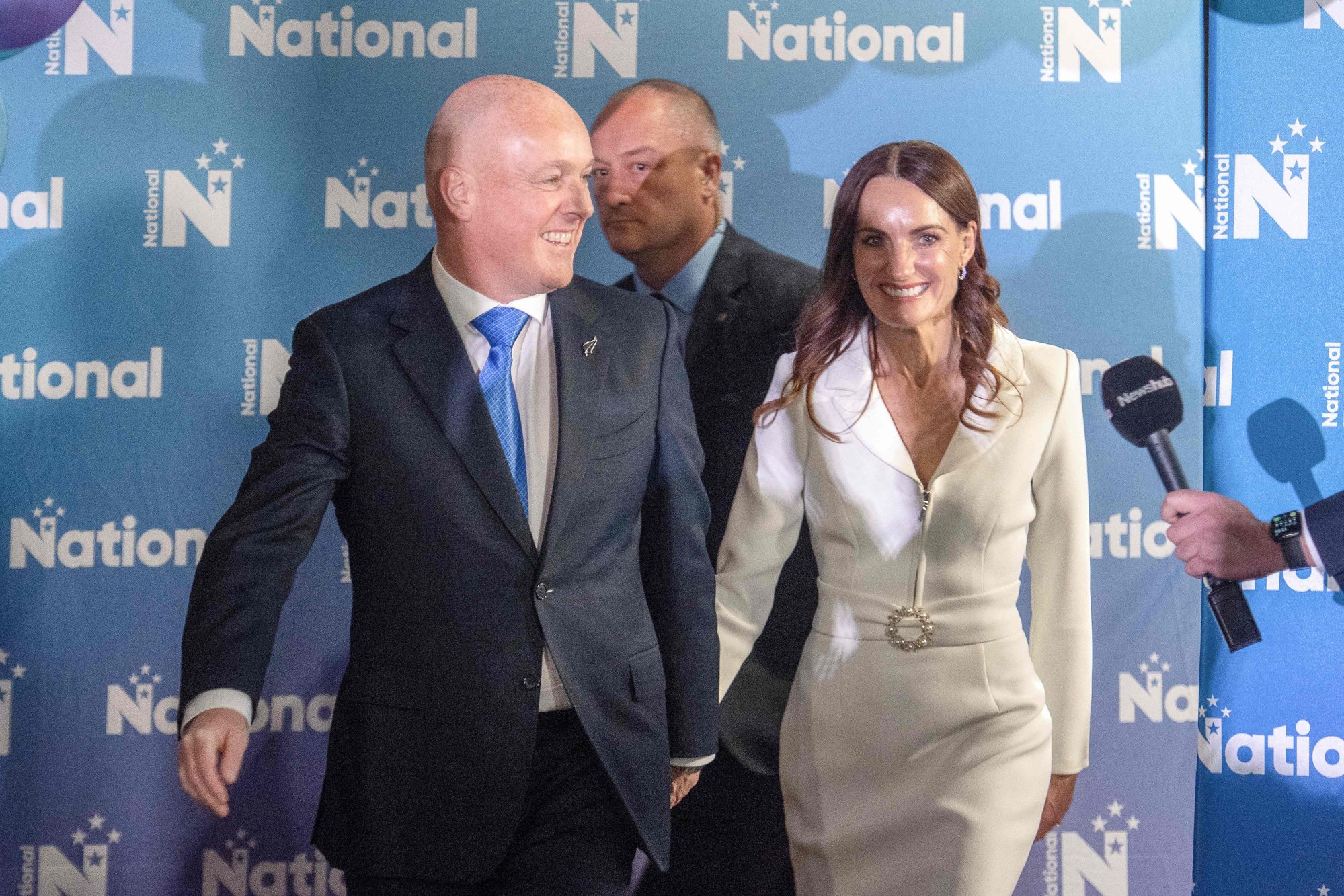
New Zealand’s National Party to lead new government: ‘We will make this an even better country’, new leader Luxon says
- Christopher Luxon will be New Zealand’s next prime minister and is expected to form an alliance with the libertarian ACT Party
- Prime Minister Chris Hipkins, who spent just nine months in the top job after taking over from Jacinda Ardern in January, called Luxon to concede
New Zealand’s centre-right National Party led by Christopher Luxon will form a new government with its preferred coalition party ACT, as Prime Minister Chris Hipkins conceded his Labour Party could not form a government after Saturday’s general election.
The National Party, now in opposition, had 39 per cent of the votes with 92 per cent counted, while the ACT party had 9 per cent. That would give the two parties enough seats to form a government, according to the Electoral Commission.
“On the numbers tonight National will be in the position to lead the next government,” Luxon, a former executive who once ran Air New Zealand and entered politics just three years ago, told supporters in Auckland.
“We will make this an even better country.”
National won over voters by promising relief for struggling middle-income New Zealanders, and to bring historically high inflation under control while reducing the country’s debt.
“The overwhelming driver was dissatisfaction with the [Labour government],” said political commentator and former National staffer Ben Thomas.
New Zealand’s ex-PM Ardern given top royal honour for service
Under former leader Jacinda Ardern, Labour in 2020 became the first party to capture an outright majority since New Zealand switched to a mixed member proportional system in 1996.
But Labour has since lost support, with many New Zealanders disgruntled over the country’s long Covid-19 lockdown and the rising cost of living.
Hipkins has tried to re-engage with those voters, focusing on what he termed “bread-and-butter issues”, but was unable to gain traction in the polls.
The National-ACT majority is slim and the two parties may need support from the populist New Zealand First Party to form a government. Coalition negotiations between National and ACT are expected to begin in the coming days.

There are normally 120 seats in parliament but because the Te Pati Maori’s four seats from constituencies exceeded its share of the national popular vote, the electoral system calls for creating additional proportional seats to even out representation. This will alter the final seat tally.
In addition, the final vote count, which includes overseas and special votes, is not due until November 3. Special votes have historically made slight changes to the outcome, adding seats for the left at the expense of the right-leaning bloc.
Gareth Hughes, a political commentator and former Green Party strategist, said it might not be clear until after the official vote count is returned whether National and ACT will need the support of New Zealand First to form a government.
“It’s a change election but the actual detail of the change is still to be seen,” he said.
Labour’s losses were significant, with some high-profile members of the party failing to hold onto their seats. Nanaia Mahuta, the foreign minister, lost her constituency seat and will not be returning parliament.

eek, Luxon, who served as chief executive of both Unilever Canada and Air New Zealand, told an energised crowd in Wellington that he would crack down on gangs.
“I’ve gotta tell you, crime is out of control in this country”, Luxon said. “And we are going to restore law and order, and we are going to restore personal responsibility”.
Luxon also got cheers when he promised to fix the capital’s gridlocked traffic with a new tunnel project.
Luxon is relatively new to politics but held his own against the more experienced Hipkins during televised debates, according to political observers. But Luxon also made some gaffes, such as when he was asked in a 1News debate how much he spent each week on food.
His answer of “about sixty bucks” (US$36) was ridiculed on social media as showing him being out of touch with the cost of living.


